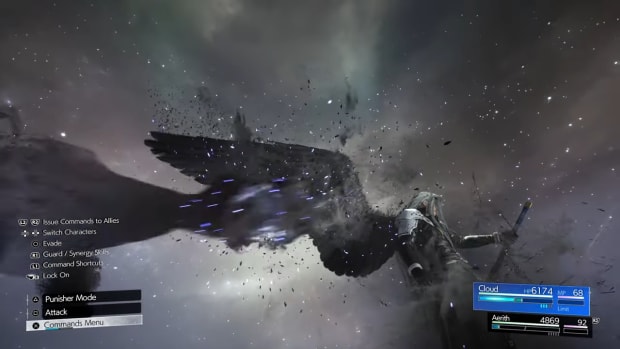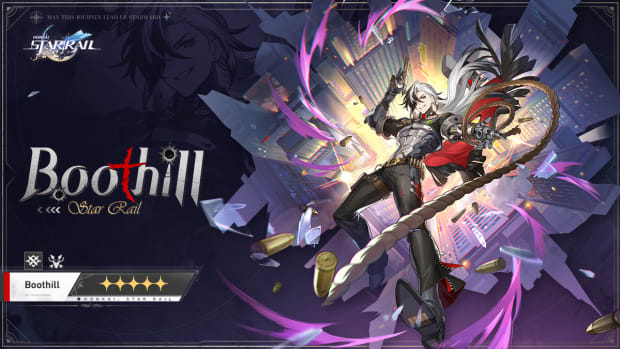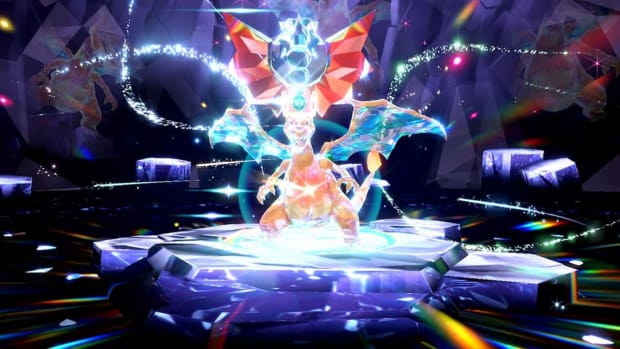
Warhammer 40,000: Rogue Trader is a CRPG about breaking rules and getting rich
We lived in a different world last time we checked on Warhammer 40,000: Rogue Trader for the start of its Early Access phase. In that world, CRPGs were an old-fashioned genre only sought after by hardcore fans. However, we now live in a world post Baldur’s Gate 3. We live in a world in which a CRPG managed to captivate the hearts and minds of a much larger audience than a mere group of hardcore fans.
I ask Owlcat Games’ Alexander Mishulin, who runs me through a high-level combat sequence, whether that’s a curse or a blessing. “We think that it’s more of a blessing and we’re really happy for Larian to release such a great game,” Mishulin answers. “It brought a lot of attention to the genre, and a lot of new players. When they’ll be finished with their first or second playthrough of Baldur’s Gate, they’ll hopefully be looking for new CRPG experiences.”
More games from the genre will receive attention in the wake of Larian’s triumph, Mishulin thinks. He points out that all games come with different strengths, though, and that most titles won’t be able to match Baldur’s Gate 3’s production value. “We are hoping that our emphasis on storyline choices, consequences, and campaigning actions, which are our strong suit, will be enjoyable for players. There is a place for a lot of great CRPGs,” he says.

If you liked the darker scenes of Baldur's Gate 3, Warhammer 40,000 welcomes you with open arms.
Owlcat
Owlcat certainly has the pedigree to successfully tackle this test of mettle, having created the fantastic Pathfinder CRPGs in the past. Where Larian could make use of the popular Dungeons & Dragons IP, Owlcat is diving into another iconic setting, also using a pre-established tabletop RPG ruleset. Just like Larian did with D&D 5th Edition, Owlcat is taking whatever works from the Rogue Trader RPG rules created by Fantasy Flight Games and making adaptations where they are needed. An example Mishulin points out to me is the variety of skills at players’ disposal. The original rules didn’t have enough of those to fit the scale of what Owlcat envisioned, so the team made some additions of its own.
That certainly paid off – Mishulin shows me a battle from about 80 hours into the game and there are some turn-based tactical games out there that could certainly use some of Rogue Trader’s breadth of abilities and tactical choices.
Going through the six characters that currently make up his team, he roughly breaks down their roles: His Rogue Trader is a damage dealer packing a heavy bolter that can pierce through opponents to hit additional targets. Abelard is a classic tank, taunting enemies into attacking him. Jae is a smuggler, who uses poisoned ammunition and can manipulate the turn order in her team’s favor. Pasqal is a Mechanicus Tech Priest, who primarily debuffs enemies and has some incredibly interesting options to shape the terrain into his team’s favor, applying different area-of-effect buffs.
Then there is Idira, an unsanctioned Psyker. For those not familiar with the setting, Psykers are essentially magic users, drawing on the powers of something called the Warp to make powerful attacks, see the future, and so on. Using especially potent abilities tends to erode the Veil – the wall between reality and the Warp – and that’s not a good thing, because the Warp is where the Chaos Gods and their associated daemons are at home. TL;DR: Don’t go too wild, because a daemon will pop into reality or Idira’s head will explode. Or maybe the daemon comes out of the exploded head. Or maybe an enemy Psyker sacrificed himself deliberately to call forth a daemon. It’s Warhammer 40,000, after all.
Idira isn’t even the most exotic team member, because this particular group is running with a Drukhari warrior called Marazhai, and this is where we begin to see the uniqueness of Rogue Trader compared to other 40k games. See, Drukhari or Dark Eldar are aliens, otherwise known as xenos in the setting. It’s kind of the entire shtick of the Imperium of Mankind to eradicate all xenos it finds, because, well, no one is a good guy in this universe and we are talking about a fascist theocracy here. You shoot the xenos or the commissar pointing a gun at your own head pulls the trigger.
As a Rogue Trader, you get to break these rules. You get to have the thing that basically no one else in the entire Imperium gets to enjoy: freedom. That’s because you have a Writ of Trade, a massive document issued in the name of the God-Emperor that gives you immense power – you’re essentially allowed to do whatever you see fit to expand the Imperium’s influence over unknown regions of space as you trailblaze into the unknown and no one is allowed to touch you even for deeds that would be considered heresy otherwise. Like letting a captured Dark Eldar live and forcing them to join you in battle. That’d be inconceivable for this setting otherwise. It doesn’t mean your more traditional companions will just suck it up, of course, so depending on your roster there will be a bit of tension or awkwardness in the room. And, well, the Dark Eldar himself doesn’t exactly have the highest opinion of humans either.
That freedom, though, is one of the reasons why the team was so eager to create a Rogue Trader game, Mishulin tells me. Initially, this pitch came from some team members who were running different tabletop campaigns in Rogue Trader and Dark Heresy, another Fantasy Flight Games RPG in the setting, but one focused on inquisitors.
It’s not your typical 40k experience and this is reflected throughout the experience – in the music, among other aspects. While the soundtrack has its fair share of your typical mix of choral chanting and military marching tunes, it contains pieces you wouldn’t expect from 40k to depict the different areas you visit and characters you meet. He points out that Rogue Trader will have romantic music themes, since there will be romance options for some companions. “In the world where there is only war, romance is rarely shown or highlighted,” Mishulin tells me. “Expect some surprises.” Another huge inspiration, he says, is the soundtrack for Warhammer 40,000: Mechanicus, which is regarded as a fan favorite in the community.
Really, that’s the perfect bridge for me to return to our combat sequence, because just like in Mechanicus, we’re fighting some Necrons – ancient beings that have transferred their consciousnesses into high-tech battle suits. Thanks to Mishulin likely having played this exact scenario a couple of times before showing it to me, they aren’t quite the danger they may be to other players. All the better for me, as I get to see a master at work, using every possible trick in the book to maximize his damage output.
Mishulin uses the Rogue Trader’s piercing shot to attack several Necrons at once and then hit their teleportation device, which periodically calls in reinforcements. He debuffs the biggest threat on the field, a Necron Immortal, with Pasqal, before sending in the one-man-army that is Marazhai, who slices and dices with his swords. He explains to me that this team composition is based around the Dark Eldar, who does more damage the more often he attacks. That’s where Jae comes into play with her turn manipulation, giving the warrior extra attacks. Mishulin even manages to maneuver Marazhai around the Necron Immortal in such a way that its missed shot against the Dark Eldar hits the Necrons standing behind him. Rogue Trader is less about the individual character builds (though there are plenty of options there) and more about the team composition.
Truthfully, combat in Rogue Trader is a lot to handle – you can have up to six characters in your party and all of them have a ton of abilities to choose from. They also have a surprising amount of actions on a single turn. On a tactical level, though, this is exactly what you want: Positioning is crucial to avoid friendly fire (and cause the enemy to make mistakes like the one described above) and while the enemy seems to have less actions overall, he makes up for it with power – one of the shots from the Necrons’ Tesla Carbines almost takes out the Rogue Trader with one hit.
That’s why one of Owlcat’s biggest focuses at the moment is onboarding and working on the game’s approachability – both in terms of mechanics and setting. One example is the fact that right now tooltips show the exact formulas used to calculate the damage of attacks. That’s great for a hardcore player, but isn’t inviting to everyone else. In the future, these formulas can still be accessed, but the regular tooltips will show less complicated information for quick overview.
Feedback from Early Access players, Mishulin says, has helped tremendously to identify issues, but also bloated the team’s to-do list: There will be an in-game encyclopedia players can reference when it comes to the terminology of the setting, tutorials will be overhauled, and balance is being looked at. Space combat, which also runs in a turn-based format, is a big area that needs to be reworked with players feeling that it’s too repetitive as it is at the moment. Loot distribution is an area Owlcat itself isn’t happy with at the moment, so that’s on the list as well. “There is a lot of work happening right now,” Mishulin concludes.
I know what you’re thinking: ‘This is an article about a Warhammer 40,000 game, but this guy hasn’t mentioned Space Marines even once! Where are my Space Marines?!’ There are Space Marines in Rogue Trader – and they are overpowered as hell. You can gain one Space Wolf as a companion and will face Chaos Space Marines of the Word Bearers. This, perhaps more than other things, is another reminder that Rogue Trader is very different. Space Marines aren’t front and center, but their appearance will have a lot of impact.
While you’ll encounter lots of familiar aspects of the lore and greater developments in the rest of the universe will be hinted at, the events of Rogue Trader are somewhat isolated from everything else that’s going on after the fall of Cadia. The Koronus Expanse, where the game is set, is quite far out there and difficult to get to, making it the perfect environment for a Rogue Trader.
And you should take that name literally: You will do trading in this game. You will set up and manage your own colonies. Essentially, you’re establishing your own fiefdom in this area of space, vying for power and influence with everyone else there. You can fill the cargo holds of your voidship with resources and loot, delivering it to factions like the Imperial Fleet to gain their favor. That growing Profit Factor, in turn, allows you to make demands – you can’t really be expected to pay for that amazing armor set they are offering now, can you? In this lawless frontier space, a Rogue Trader’s word becomes the law.
This power fantasy translates to combat as well. You stick to the rules most of the time, but you can make exceptions whenever your Momentum meter is filled up enough. This unlocks ultimate abilities that essentially cast the regular rules of combat aside. Marazhai, for example, can attack several times in an extended turn once he’s activated this ability, chopping the Necrons and their supporting Scarab drones into tiny little pieces. Momentum is gained whenever something goes well for you in combat. On the other hand, you gain Despair whenever things go awry. In an interesting twist, that also allows you access to a powerful ability to try and turn the tide, but this one comes at great cost for the rest of the battle.
Warhammer 40,000: Rogue Trader is shaping up to become an excellent CRPG and a unique morsel for enjoyers of the setting – we’ll have to wait and see whether the spotlight Baldur’s Gate 3 has cast over the entire genre will be a blessing or a curse for Owlcat Games’ title. For the moment, all the studio can do is work hard, pray to the Omnissiah, and stick the landing.
It's coming out on December 7, 2023, on PC, PS5, and Xbox Series X|S.








